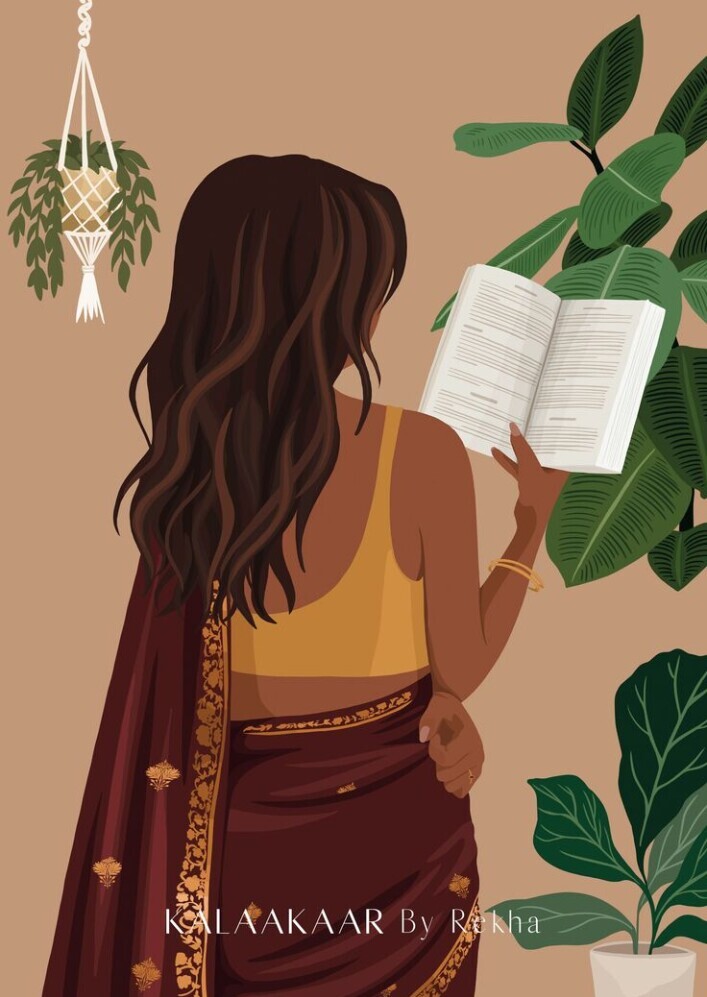
When we think of South Asian culture, mental health awareness isn’t exactly the first thing that comes to mind. But here’s the truth: South Asian women have been quietly and powerfully changing the landscape of mental health in our communities for years. They’re pushing back against outdated stigmas, starting honest conversations, and building spaces for healing and support. These women are breaking down barriers that have stood for generations, showing us that it’s okay to seek help, speak up, and prioritize our well-being.

The Power of Breaking Silence
For many South Asian women, advocating for mental health starts with breaking the silence. Mental health struggles often go unspoken in our communities, particularly for women, who are sometimes expected to put family and duty above their own needs. It’s common to feel pressure to appear strong and resilient, to “save face” for the family, and to keep quiet about any struggles.
Yet, over the years, more and more South Asian women have been opening up about their experiences with anxiety, depression, and trauma. By sharing their stories, they’re challenging the deeply ingrained idea that mental health struggles are something to be ashamed of. This openness has become a beacon of hope and courage, encouraging others to come forward and seek support without fear of judgment.
Facing Cultural Stigma Head-On
Mental health stigma in South Asian communities often runs deep, rooted in cultural expectations and generational beliefs. For a long time, mental health issues were either misunderstood or outright dismissed. There was a common sentiment that problems like depression or anxiety were signs of weakness or a lack of resilience.
South Asian women who advocate for mental health awareness face this stigma head-on, addressing misconceptions with facts, compassion, and personal stories. Many of them are using their platforms to talk openly about their struggles and to educate their communities about the importance of mental health. They’re redefining what it means to be “strong” by showing that strength also lies in vulnerability, openness, and the courage to seek help.

The Role of Social Media in the Movement
Social media has been a game-changer in the mental health advocacy landscape, providing a powerful platform for South Asian women to connect, share, and raise awareness. Instagram, Twitter, and YouTube are full of voices from South Asian women who are unafraid to talk about therapy, coping mechanisms, and the ups and downs of mental health.
These platforms allow women to reach people across borders, sharing resources, tips, and stories that might not be accessible otherwise. Through social media, they’re building communities where mental health discussions are normalized and embraced. Women like Deepika Padukone, who has spoken openly about her depression, and influencers who use their platforms to destigmatize mental health, have created a ripple effect, making it more acceptable for others to share their stories too.
Creating Safe Spaces for Healing
One of the most impactful ways South Asian women are pioneering change is by creating safe spaces for healing. This can look like starting support groups, opening therapy practices that cater specifically to South Asian clients, or launching community events focused on mental health.
These spaces are transformative. They provide a place where people can talk freely about their mental health without fear of judgment or misunderstanding. For many, this sense of community and understanding is exactly what’s needed to begin the healing process. South Asian women are stepping up to create these spaces because they understand the unique cultural nuances and challenges faced by their communities.
Shaping the Next Generation’s Approach to Mental Health
One of the most inspiring aspects of this movement is its impact on future generations. By advocating for mental health awareness now, South Asian women are helping shift the cultural narrative. They’re teaching the next generation that mental health is as important as physical health and that seeking help is a sign of strength, not weakness.
Through their work, they’re setting a new standard for mental health in South Asian communities—one that is open, compassionate, and rooted in understanding. Children and young adults growing up in this new environment will, hopefully, feel less pressure to hide their struggles and more empowered to seek support.
How We Can Support This Movement
The movement for mental health awareness in South Asian communities is growing, but there’s still a long way to go. Here’s how we can support and build upon the work of these incredible women:
- Listen and Share: Pay attention to the stories being shared and consider sharing your own experiences if you’re comfortable. When we speak up, we help dismantle the stigma that surrounds mental health.
- Educate and Advocate: One of the best ways to support the movement is by learning about mental health and spreading awareness in our own circles. Start small—maybe share a mental health article with family or discuss mental health in casual conversations.
- Support South Asian Mental Health Advocates: Whether it’s by following them on social media, attending their events, or donating to organizations they support, let these advocates know their work is appreciated and making a difference.
- Challenge Stigma with Compassion: The next time someone dismisses mental health issues, challenge that stigma gently and compassionately. Explain why mental health matters and share stories that might resonate with them. The goal isn’t to win an argument but to open minds and hearts.
Moving Forward
South Asian women are at the forefront of a mental health revolution, and they’re proving that real change starts from within. By advocating for mental health awareness, they’re building a future where South Asians can seek help without fear, connect over shared experiences, and support each other through life’s ups and downs.
In this journey, they’re not only helping individuals heal but also reshaping our communities for the better. And as more people join this movement, we can look forward to a future where mental health isn’t just a quiet battle we fight alone—it’s a part of our lives we openly embrace, support, and nurture together.
No Responses